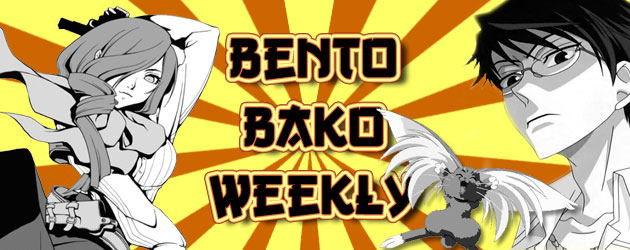Welcome to Comics Are My Religion, a look at theology through the lens of comic books. There are some basic ground rules about engaging in respectful dialog about religion in this column. There be spoilers ahead, so beware!
When I first picked up Craig Thompson’s Habibi, I fully intended on writing a whole column on it. However, I realized that such a book cannot be written about, but rather should be talked about. So I enlisted the help of my friend A. David Lewis to chat with me for a special edition podcast on Habibi. Dave is the writer of such graphic novels as The Lone and Level Sands, which I covered last month, Mortal Coils, and Some New Kind of Slaughter, the co-editor of Graven Images: Religion in Comic Books and Graphic Novels, and PhD candidate at Boston University. He also gives us a glimpse of the new project he’s working on called Chain World: A Freeform Comic Book Experiment, which you can learn about on Kickstarter.com or at the upcoming site the-tome.com.
We only hit the tip of the iceberg with this book, but I hope it gives you some insight into what Thompson is doing. Enjoy the podcast!
Comics Are My Religion: Habibi Podcast with A. David Lewis
(You can click the link to listen to the podcast or right click “save link as” to download it.)
Please tell us what you think about Habibi, give us feedback on the book and our conversation, and always feel free to discuss your views and opinions in the comments below. You can also e-mail me at jeff@comicattack.net or follow me on Twitter @FrJeffJackson.
Music by Rusted Root, Faith I Do Believe.
Jeff Jackson
jeff@comicattack.net






I enjoyed the conversation very much. I found Habibi to be a love story first and foremost, but for Thompson love and lust and spirituality are his key issues, so religion/faith inevitably enters in. I see the orientalism of the story as a kind of extension of the calligraphic effects, but additionally, I find that his depiction of the modern world is a romanticized and imprecise portrayal as well. We don’t notice it because we live in it, but Dodala and Zam must have found it as exotic as well do the Sultan’s harem guarded by eunuchs.
I’d say the failure to depict castrated genitalia is a concession to modern sensibilities. It would have simply been sensationalizing the scars, and leaving it unshown allows the power of the imagination fuel our horror at the act.
Hey Marvin! Love your work, man! Thanks for taking the time to listen and write in.
Could it be that Thompson really just wants to tell a love story here? With all the romantic trappings and all? I don’t get the sense that he’s going for historical accuracy or realistic portrayals of culture. However, he most certainly is telling an original love story that uses spirituality and sexuality, even the orientalism, as devices to further the romanticism of the tale.
One of the things I loved about the imprecision of the world he creates here is that it had a timeless feel. I was surprised when I saw modern technology enter the world of the book, as I felt like it was a period piece for a good chunk of the book.
Great review Jeff. I’ve not read any of Thompson’s stuff, but I’ll start looking for both his books at the library.
Also, I liked the podcast format. You ought to do that more often.
Thanks Moses! I liked doing the podcast format, but I also like writing. If I get more feedback about the podcast, I would certainly consider it.
On another note completely, my wife, who has never read a comic in her life because she doesn’t respond to the sequential storytelling, is half-way through this book.
@ Jeff
I certainly don’t want you to cease writing. Your article’s are great. Just an occasional podcast when the topic would be benefit from discussion.
@Jeff’s wife
Welcome to the club. Maybe I can get my wife on board too.
Amazing! I’ve seen this on shelves. I’m going to definitely pick this one up, now. It caught my eye before.
Great article/podcast/discussion!